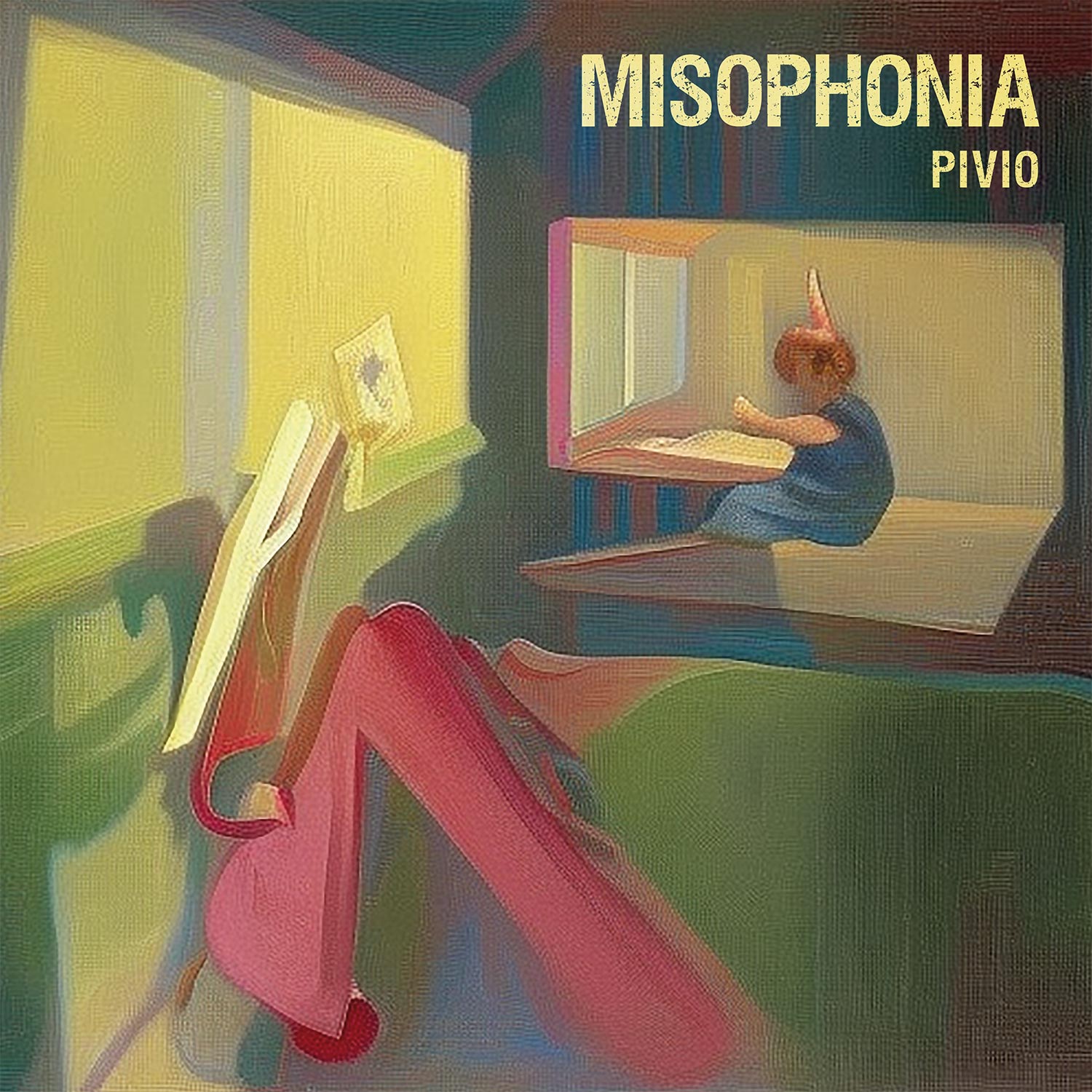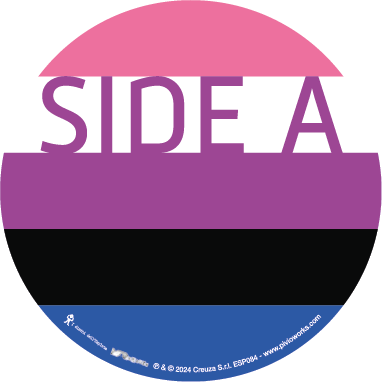Misophonia (2024)
Pivio
I dischi dell’espleta – ESP084
digital, vinyl
Misophonia is the new solo work by Pivio that concludes the so-called “trilogy of social pathologies”, which began with Cryptomnesia (2020) – an album made in the midst of the pandemic, and continued with Pycnoleptic (2023), a disc that had allowed experimentation with new audio technologies (in particular through a native mix with the Atmos system). This time it is the fear of sound that characterizes this latest production, fear understood in a broad sense such as the attempt by many governments to silence the sound of political and social dissent. Also in this case, as for the previous ones, the album was made substantially alone, with the unique collaboration of a large string group in three songs (the opening one, Wildest dreams, the central The words I say and the final Start again). There are also three covers, In the art of stopping by Wire, Never understanding by Jesus and Mary Chain and What use by Tuxedomoon, whose lyrics (also with the collaboration of Marco Odino – former member of the new-wave group Scortilla) then became the starting point for a decontextualization carried out in the remaining 6 songs.
Pivio writes: “I started to approach the world of music since I was very young (I even risked participating in a Zecchino d’oro as a singer) but only from the second half of the 90s the music become my main activity, especially in the field of writing and producing soundtracks (by now there are more than 200 to my name). But I’ve always been interested in dealing concretely with the song form, sometimes even with some small satisfaction. And Misophonia is essentially an album of songs. However, for some years I’ve been witnessing an artistic and productive revolution in the record market, whose mechanisms I understand well but which I cannot share, not even reluctantly. In this sense, this latest work of mine risks being “misophonic” or at least not at all aligned with the current winning model, something that I strongly claim anyway. And this is therefore increasingly convincing me that it would be appropriate to make “the art of stopping” my own, in the hope of finding, sooner or later, new forms, not necessarily musical – or maybe yes -, to try to express what I really feel.

Below, something about the various songs in MISOPHONIA:
Wildest dreams
It’s the incipit in which the narrator offers his declaration of intent on what he wants to propose in his work (and how), well aware that it’s very likely that it will be a chaotic journey in solitude, within which his wildest and most twisted dreams will find their place.
In the art of stopping
Cover of the song by Wire, a group I am very fond of even if I was able to applaud them live only once, precisely on the occasion of the presentation of the album from which this song is taken. Its simple text contains many keywords that will return several times in the other songs of Misophonia.
Fly to Rome
Darker and darker times are approaching, and the noise of wars becomes more and more distinct. Perhaps returning to what has become my adopted city will not really be able to save me from the nightmares that financial appetites with their new toys are fueling at the expense of increasingly defenseless populations.
Never understand
Cover of the song by Jesus and Mary Chain. Originally based on a chant similar to a nursery rhyme immersed in a noisy continuous feedback of electric guitars, it can become an example of what many identify as an annoying sound. Also in this case its text contains passages that have been decontextualized in other songs on the album.
The last song of side A
A decidedly self-referential song. It corresponds to the closing of the first side of the album and contains melodic and textual elements that serve to launch the next …
The words I say
The perception of the world is a strange image, especially when the lack of communication and the polarization of one’s beliefs seem to be the result and not the cause of the noises that distinguish its existence. And so the words spoken remain trapped in one’s head without anyone really being able to understand them.
Nobody trusts art
Nobody seems to trust art anymore, no matter which of its infinite expressions, and we tend to prefer the sense of chaos, where every thought remains indistinct and therefore no longer dangerous. But it could be that this chaos creates the conditions for a sort of rebirth, even at the risk of having to accept the power of art to stop.
What use
Cover of Tuxedomoon. A song that has remained well impressed on me over time for its originality and that has gradually generated strange sensations also thanks to a text with a very cryptic flavor that, precisely for this reason, has revealed itself to be an immense source of inspiration for the album Misophonia.
Start again
The games are over and by contrast it is time to start again, perhaps to find something new, trying not to look back and ready to fight a new challenge, even in the knowledge that one day everything will end, even in Heaven.


1, 6, 9 (Pivio / Marco Odino) Ed. Creuza S.r.l.
2 (Graham Lewis) Ed. Pinkflag
4 (James Reid – William Adam Reid) Ed. Domino Pub. Comp. Ltd.
3, 5, 7 (Pivio / Marco Odino – Pivio) Ed. Creuza S.r.l.
8 (Blaine Reiniger – Steven Brown – Peter Dachert) Café Concerto S.r.l.
Recorded at Trancendental Studio (Roma)
Strings recorded at Trancendental Studio (Genova)
Mixed at Bitbazar Studio (Roma) by Massimiliano Nevi and Pivio
Mastered at Bitbazar Studio (Roma) by Massimiliano Nevi
Digital artwork by Pivio
Photo by Carmen Giardina
Graphic art by Rita Giacalone at Bitbazar Studio (Roma)
Produced by Pivio
Pivio: voice, backing vocals, MS20, Mellotron, Arp 2600, electric piano, electric guitar, daf
Cristian Budeanu: violin in 1, 6
Alessandra Dalla Barba: violin in 1, 6
Noemi Estzer Kamaras: violin in 1, 6, 9
Federico Mazzucco: violin in 9
Angelica Pierri: violin in 9
Roberto Piga: violin in 9
Beatrice Puccini: violin in 1, 6, 9
Laura Sillitti: violin in 1, 6
Roberta Tumminello: violin in 1, 6, 9
Ilaria Bruzzone: viola in 1, 6, 9
Daniele Guerci: viola in 1, 6, 9
Arianna Menesini: cello in 9
Martina Romano: cello in 1, 6
Maria Laura Zingarelli: cello in 1, 6, 9
Gianpiero Lo Bello: trumpet, flugelhorn in 1